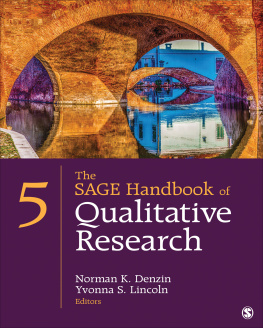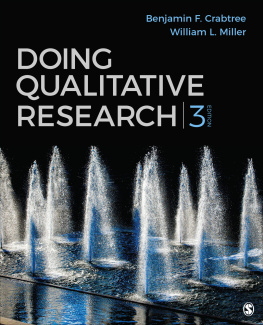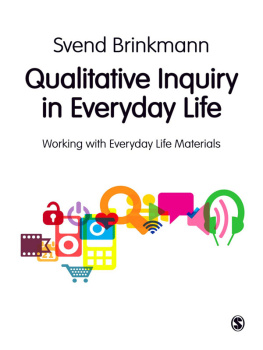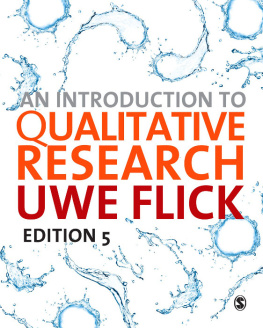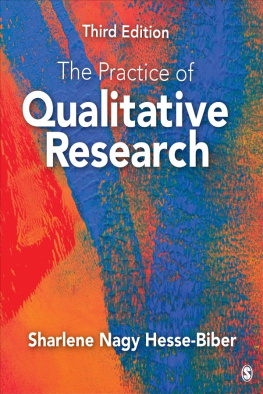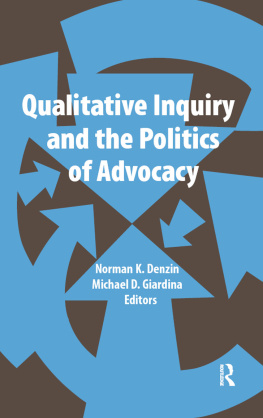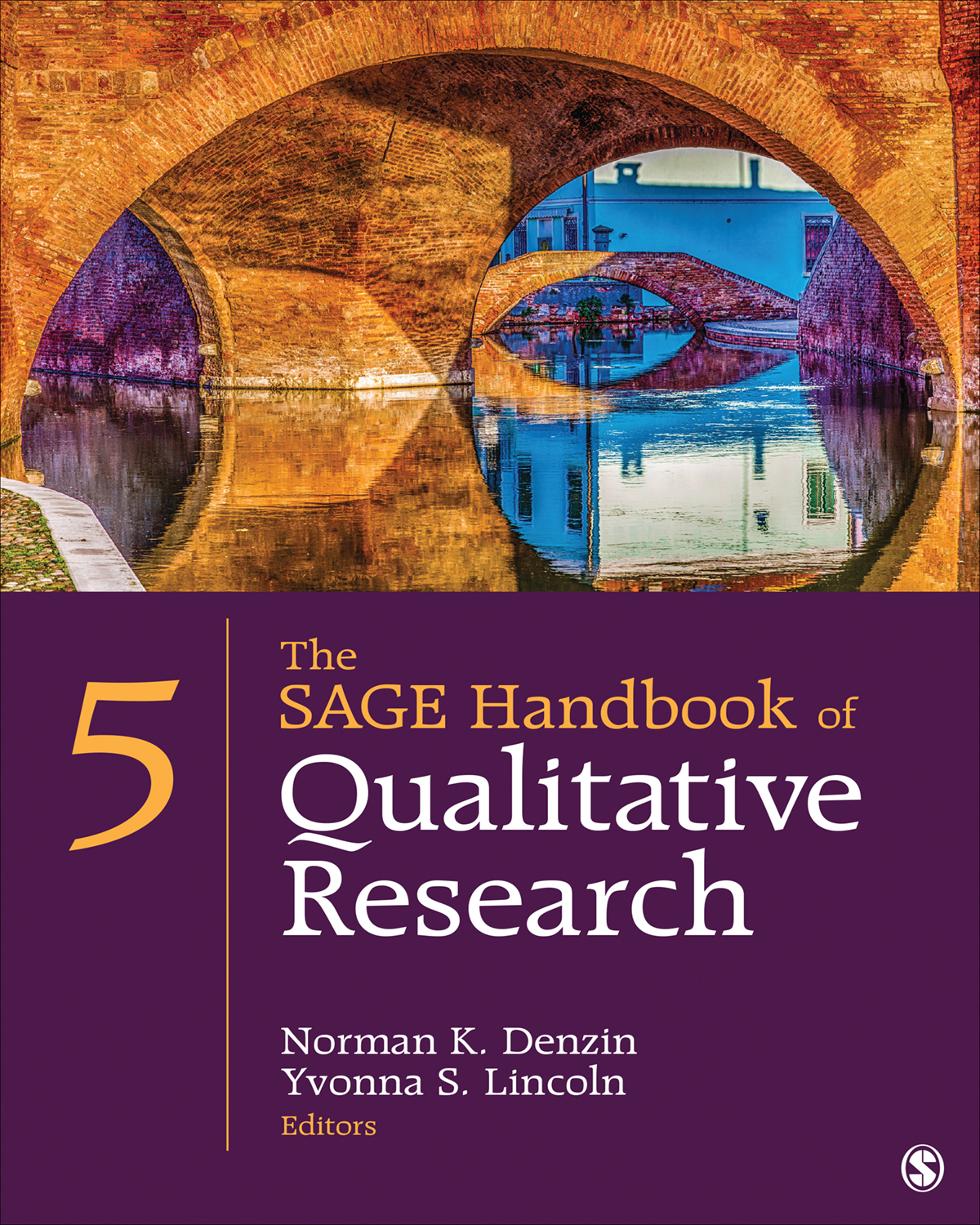The SAGE Handbook of Qualitative Research
Fifth Edition
International Advisory Board
Ivan Brady
Anthropology, State University of New York at Oswego (emeritus)
Gaile Cannella
Education Independent Scholar, College Station, TX
Julianne Cheek
Health, University of Oslo and University of South Australia
Michelle Fine
Education, City University of New York
Uwe Flick
Psychology, Freie Universitt Berlin
Mirka Koro-Ljungberg
Education, Arizona State University
Maggie MacLure
Education, Manchester Metropolitan University, UK
Janice Morse
Nursing, University of Utah
Fredrick Nafukho
Education, Texas A&M University
Paula Saukko
Social Sciences, Loughborough University, UK
Barbara Tedlock
Anthropology, State University of New York at Buffalo
Harry Torrance
Education, Manchester Metropolitan University, UK
The SAGE Handbook of Qualitative Research
Fifth Edition
- Edited by
- Norman K. Denzin
- University of Illinois
- Yvonna S. Lincoln
- Texas A&M University

- Los Angeles
- London
- New Delhi
- Singapore
- Washington DC
- Melbourne
Copyright 2018 by SAGE Publications, Inc.
All rights reserved. No part of this book may be reproduced or utilized in any form or by any means, electronic or mechanical, including photocopying, recording, or by any information storage and retrieval system, without permission in writing from the publisher.
FOR INFORMATION:
SAGE Publications, Inc.
2455 Teller Road
Thousand Oaks, California 91320
E-mail: order@sagepub.com
SAGE Publications Ltd.
1 Olivers Yard
55 City Road
London, EC1Y 1SP
United Kingdom
SAGE Publications India Pvt. Ltd.
B 1/I 1 Mohan Cooperative Industrial Area
Mathura Road, New Delhi 110 044
India
SAGE Publications Asia-Pacific Pte. Ltd.
3 Church Street
#10-04 Samsung Hub
Singapore 049483
Acquisitions Editor: Helen Salmon
Editorial Assistant: Chelsea Pearson
Production Editor: Olivia Weber-Stenis
Copy Editor: Gillian Dickens
Typesetter: Hurix Systems Pvt. Ltd.
Proofreader: Theresa Kay
Indexer: Naomi Linzer
Cover Designer: Candice Harman
Marketing Manager: Susannah Goldes
Printed in the United States of America
ISBN 978-1-4833-4980-0
This book is printed on acid-free paper.
17 18 19 20 21 10 9 8 7 6 5 4 3 2 1
Preface
We shall not cease from exploration
And the end of all our exploring
Will be to arrive where we started
And know the place for the first time.
T. S. Eliot, No. 4 of Four Quartets, 1943
The fifth edition of The SAGE Handbook of Qualitative Research, like the fourth edition, is virtually a new volume. Nearly two thirds of the authors from the fourth edition have been replaced by new contributors. Indeed, there are 57 new chapter authors and/or coauthors. There are 16 totally new chapter topics, including contributions on feminist qualitative research in the millenniums second decade, critical social science, critical pedagogy and the bricolage, new science studies, the marketization of qualitative inquiry, data and its problematics, triangulation, observation in a surveilled world, thinking with theory, collaborative writing, rigor, the global audit culture, transformative research for social justice, human rights, indigenous inquiry, evidence, politics, science and government, criteria for assessing interpretive validity, models of representation, varieties of validity, qualitative research and technology, queer theory, performance ethnography, narrative inquiry, arts-based inquiry, the politics and ethics of online ethnography, analytic methodologies, writing strategies, policy and qualitative evaluation, the future of qualitative inquiry, teaching qualitative research, talk and text, focus groups in figured worlds, and postqualitative methodologies. All returning authors have substantially revised their original contributions, in many cases producing a totally new and different chapter; some added new authors, new voices.
There were and continue to be multiple social science and humanities audiences for the Handbook: graduate students who want to learn how to do qualitative research; interested faculty hoping to become better informed about the field; persons in policy settings, who understand the value of qualitative research methodologies and want to learn about the latest developments in the field; and faculty who are experts in one of more areas of the Handbook but who also want to be informed about the most recent developments in the field. We never imagined this audience would be so large. Nor did we imagine that the Handbook would become a text used in undergraduate and graduate research methods courses, but it did. In 2013, we created three new paperback volumes for classroom use: The Landscape of Qualitative Research, Strategies of Qualitative Inquiry, and Collecting and Interpreting Qualitative Materials.
The fifth edition of The SAGEHandbook of Qualitative Research continues where the fourth edition ended. Sometime during the past two decades, critical qualitative inquiry came of age or, more accurately, moved through another historical phase.1 Out of the qualitative-quantitative paradigm wars of the 1980s, there appeared, seemingly overnight, journals,2 handbooks,3 textbooks,4 dissertation awards,5 annual distinguished lectures,6 and scholarly associations.7 All of these formations were dedicated to some version of qualitative inquiry (see Erickson, , this volume). Scholars were in the midst of a social movement of sorts, a new field of inquiry; a new discourse had arrived, or so it seemed, and it flourished.
, this volume).
All of this took place within and against a complex historical field, a global war on terror, a third methodological movement (Teddlie & Tashakkori, 2011), the resurgence of a managerial and audit-based economy in the academy, the quieting of new voices, global challenges to narrow-minded ethics review boards, the beginning or end of the eighth moment (Denzin & Lincoln, 2005, p. 3).8 In the methodologically contested recent past, qualitative researchers confronted and then went beyond the scientific backlash associated with the evidence-based social movement connected in North American education with the No Child Left Behind legislation (see Hatch, 2006). At the same time, many resisted what others embracednamely, the multiple and mixed-methods research (MMR) approach to inquiry (see Teddlie & Tashakkori, 2011; also Morse, , in this volume). For too many, MMR was another version of the paradigm war, with quantitative researchers once again creating spaces for the uses of qualitative inquiry.
So near the end of the second decade of the 21st century, it is once again time to move forward into an uncertain, open-ended utopian future. It time to open up new spaces, time to decolonize the academy, time to create new spaces for indigenous voices, time to explore new discourses, new politics of identity, new concepts of equity and social justice, new forms of critical ethnography, new performance stages. We need to find new ways of connecting persons and their personal troubles with social justice methodologies. We need to become better accomplished in linking these interventions to those institutional sites where troubles are turned into public issues and public issues transformed into social policy. We must be relentless in pushing back against the structures of neoliberalism in these dangerous times. At the same time, we must revisit the recent pastnamely, this generations version of the 1980s paradigm wars. What have we learned from the feminist, indigenous, decolonizing, critical race, social justice, structural, poststructural, postqualitative, institutional review board (IRB), MMR battles?

